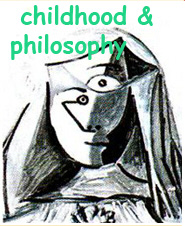pragmatism and the community of inquiry
Abstract
The influence of pragmatism—and of Dewey in particular—upon Lipman’s conception of the classroom Community of Inquiry is pervasive. The notion of the Community of Inquiry is directly attributable to Peirce, while Dewey maintained that inquiry should form the backbone of education in a democratic society, conceived of as an inquiring community. I explore the ways in which pragmatic conceptions of truth and meaning are embedded in the Community of Inquiry, as well as looking at its Deweyan moral and social commitments. I show that Peirce’s and Dewey’s notions of truth are in perfect alignment with the philosophical Community of Inquiry, as is Dewey’s tie between meaning and ideas that bring our inquiries to a satisfactory conclusion. The Deweyan notion that moral values are justified by their utility in solving problems in social life is also to be found in the Community of Inquiry, as arguably is his view that moral values are to be regarded as working values that face the tribunal of experience in much the same way as hypotheses in science. Again, the focus in the classroom on open inquiry into issues and problems, the active participation of the students in building upon one another’s ideas, the sense of shared responsibility, and the growth and development of the intellectual and social powers of the individual, all mirror Dewey’s pragmatic conception of democracy. Given this allegiance, it may be argued that the Community of Inquiry faces a pragmatic problem of its own. While it aims to be a philosophically open encounter with all kinds of issues and ideas, pragmatic conceptions are so constitutive of it that they may skew the pitch philosophically. I also address this issue. Keywords: Lipman; pragmatism; dewey; truth; meaning; ethics; political philosophyDownloads
Download data is not yet available.
Downloads
Published
2011-06-26
Issue
Section
articles



